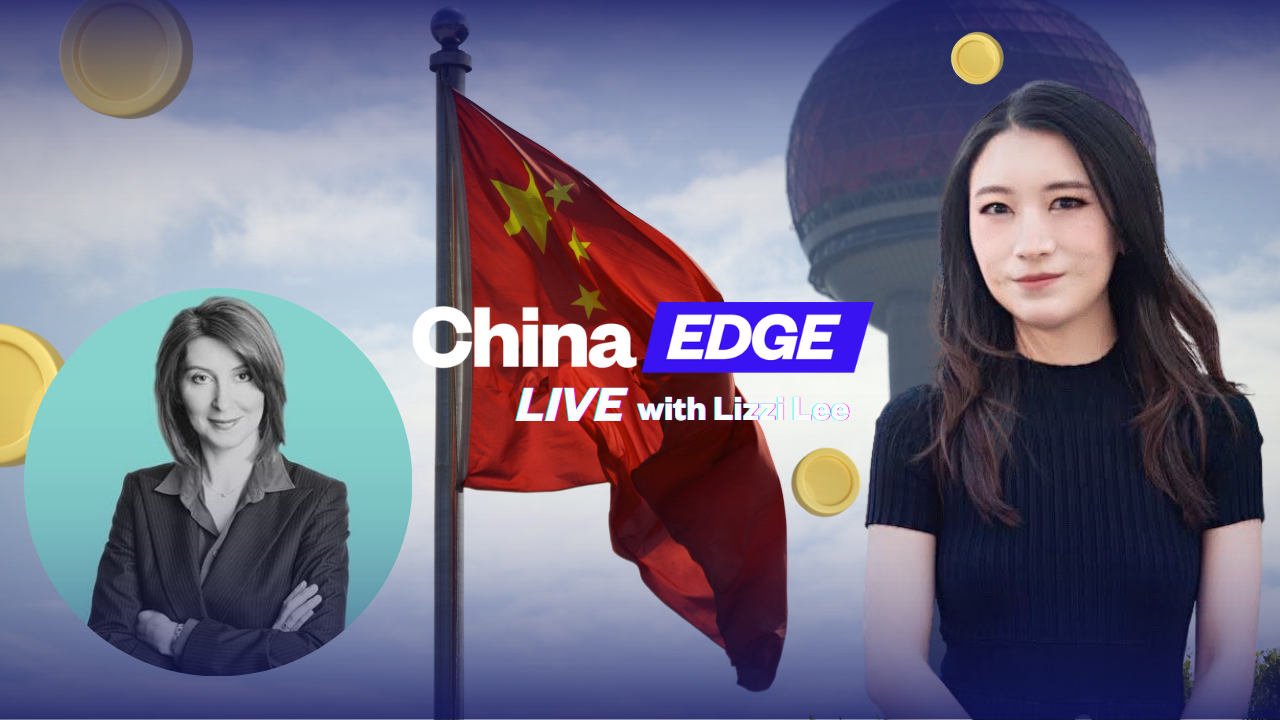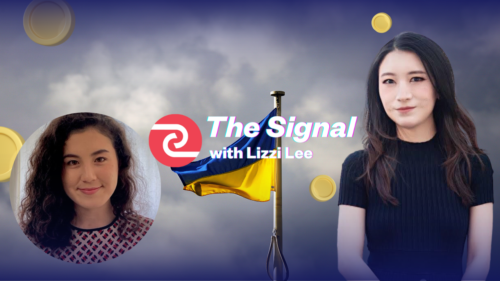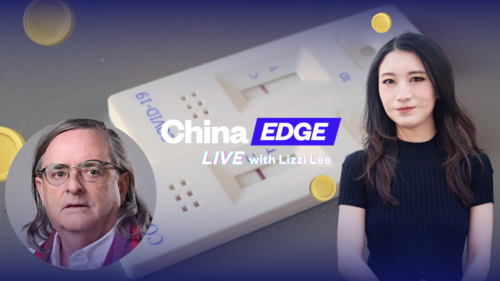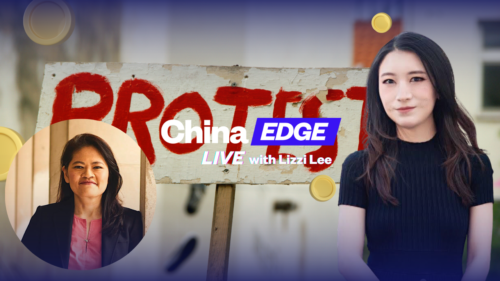Xi’s great pivot and risks in the Chinese market in 2023 | Live with Lizzi Lee
Diana Choyleva, the chief economist at Enodo Economics, talks about Xi’s COVID zero U-Turn and what it might mean for China's economic recovery in a post-pandemic world.

Below is a transcript of the Live with Lizzi Lee episode with Diana Choyleva.
Lizzi Lee: Hello and welcome to this episode of Live with Lizzi Lee, powered by The China Project. I’m your host, Lizzi. Ms. Diana Choyleva, the chief economist at Enodo Economics is joining me today. Thank you so much for joining me, Diana.
Diana Choyleva: My pleasure.
Lizzi: So, Diana, I’ve recently seen you had this comment that after Xí Jìnpíng 习近平 consolidate his power at the 20th Party Congress, he decided to take a gamble to “bring China back in action by Spring.” I wonder if you can help me understand that quote a little more. What kind of policy pivot do you expect early this year?
Diana: Well, Xi did a 180-degree turn with respect to the COVID policy. That has been a huge change. And this statement that you quoted was meant to say that. He achieved everything he wanted to consolidate power. The Politburo comprises his men, so he felt politically secure to make such a substantial U-Turn. Because China’s COVID policy, while it appeared originally successful, certainly took a huge toll on the economy, culminating with those unprecedented widespread protests in November, which the Communist Party will never admit, but was certainly a factor in pushing the leadership to change tack.
The problem was that this early success with the zero-COVID strategy and Xi attaching his name to this policy made it almost impossible for him to change because it would have been a huge loss of face. Still, progressively as we had much more virulent viruses — COVID-19 mutated into Omicron, which was impossible to contain — and the authorities in China were already struggling significantly with that strategy. So that was a significant change, accompanied by a few other changes. China desperately tries to portray that it’s open for business as usual and attract foreign investors, both FDI and portfolio investors. They declared that the crackdown on the technology giants and the Internet companies was ended and aimed to instill more confidence in the Chinese economy.
Lizzi: Right. We usually think of stamping as a hardline statist, constantly tightening his grip on ideology, clamping down on the private sector, etc. But recently, we seem to be seeing some softening on the margin. We saw those credit support to the property market. We saw the removal of Zhào Lìjiān 赵立坚, one of the most notorious wolf warriors at the Ministry of Foreign Affairs. These moves all seem to be a little uncharacteristic of Xi Jinping. Are we reading too much into these changes? Do you think Xi Jinping actually changed, or are we just projecting?
Diana: I assess that this is a tactical retreat telling us that the economy was in bad shape. Also, by being so closed off, China was losing out geopolitically with respect to the U.S. in terms of pushing forward with its strategic objectives. So from that perspective, I mean, the market has certainly failed a huge relief by this change of heart. It is too early to claim that. This is a fundamental change of direction. There are loads of other indications going on that suggest that Xi’s focused on national security first and foremost and putting economic development secondary. Over the long term, that has not changed. But China and the Communist Party, in particular, have a number of times in the past been on the brink of collapse, and they have been remarkably successful in managing to pull off from that. brink. To my mind, this was one such example of pragmatism. But has it changed the fundamental direction of travel? I don’t think so.
Lizzi: You’ve been talking about this idea of the great decoupling. You don’t mean complete severance of the relationship between the United States and China. But I wonder if you can talk a little more about the idea. What sectors are likely to be hit the hardest by the geopolitical headwinds? And how is China likely to react to the deterioration of the external environment?
Diana: The great decoupling has been our key investment thesis over the last few years here at Enodo Economics, the idea that the world is bifurcating into an American and a Chinese sphere of influence. There is an all-encompassing geopolitical clash and contest for, or if you like, great power competition between the existing hegemon and the aspiring hegemon.
And above all, this is a clash of ideologies, two very different perceptions of how the economy and politics should be run. When China joined the World Trade Organization (WTO), it was welcomed into an international order largely set according to the free liberal market economic rules. And China has, first of all, not converged towards these rules at the speed that it was originally part of the agreement of the WTO, but it certainly stated that it does want to pursue its model that is not according to those rules.
So this bifurcation of the world of this very globalized world that we are used to has had a multitude of… I’d say pervasive consequences. If you look at the economy as a whole, this type of regionalization, however, you may want to look to, whatever term you want to use, has lowered global productivity growth. You know, when you are doubling up supply chain chains, rerouting, introducing a lot more redundancy to create resilience and not be dependent, especially in today’s world, the way technology has developed has made pretty much every sector in the economy potentially into a weapon of choice. More sectors have more direct national security implications. Take, for example, semiconductors. And this was… when we came up with the phrase the great decoupling. I learned a while back when I got the global financial crisis right, That is not enough to get things right. You’ll also have to get the PR and the wording right. So I mulled over this, and we even bought the domain name, the great decoupling dot com. But when we were developing these bases, we split it into a trade war, tech war, and Taiwan war as the three aspects. But all of this and certainly the tech war has been unfolding. And, of course, the trade war naming came from Trump’s action.
You ask how China will react. It’s important to realize here that this decoupling is the strategy China has also pursued because China is only open to the rest of the world as long as it suits its own needs. And it has been pursuing a strategy of fortress China, moving up the value-added chain, and creating a self-sufficient economy within its geopolitical sphere of influence. It realizes that geographically it’s constrained and would need a geopolitical sphere of influence. But ultimately, it’s this autarkic model that China has in mind. It is not something that is the result necessarily of U.S. actions. In fact, you could argue that the U.S. was late in the game in waking up to the challenges that China’s mode of development poses.
Lizzi: You know, there’s a lot of excitement in the market right now about China’s growth prospect this year, pent-up demand, etc., etc. But do you see risks associated with China’s economic recovery this year? And what are your suggestions to investors focusing on the Chinese market?
Diana: The most immediate risk is that removing so abruptly zero-COVID. Before the protests, the authorities had gradually but very marginally relaxed conditions. There’s this very sharp ripping of the Band-Aid that comes with the risk of an uncontrolled spread, putting a much bigger strain on the health system and society than the authorities obviously are hoping for in the best-case scenario. Now, we are on the cusp of the Chinese New Year. It’s a superspreader event like no other. Certainly, the message that Beijing has spread, and every local government is now falling over itself to publish figures that it’s in urban areas, so the pandemic spread is at its peak. But of course, we now have the rural spread as the second wave. And these are more vulnerable people, with much less access to proper medical care, less education, etc..
So there is a very immediate risk of this strategy veering toward what could be a significant shock. But on balance, we assess that, actually, they’ll manage to ride this wave. Then the authorities are throwing everything and the kitchen sink at trying to get the economy going. And in particular, the small and medium private enterprises, as well as the young graduates. Unemployment rates of those between the ages of 16 and 25 have been extremely high and certainly a big, big worry for authorities in Beijing. So I expect that once we see what happens during the Lunar New Year holiday period and how China manages to ride out this wave, because the best hope for Beijing is that this washes through the population, which, you know, it’s a much less deadly virus. They have some basic vaccine protection that turns up to be like a very large flu epidemic.
Now, of course, and I say this very carefully, in the past, the Chinese Communist Party has inflicted millions of deaths. Take the Great Leap Forward, for example, where estimates suggest that thirty million people died. In that sense, it’s unlikely that we will see this level of deaths, both in terms of absolute numbers but also as a proportion of the population, to have a significant impact. And then it’s quite cynical, or if you like, heartless to say, but why this switch is positive, you know, in terms of the immediate future of China is that the lockdown measures impacted absolutely everyone and as such would be a very real unifying force, and we had the protests.
Now the deaths will impact only a share of the population and, as such, carry much less risk politically for the party. The problem is that they are yet again throwing money at the economy along the lines of the old growth model, credit-fueled, pump-priming structural changes, but not fundamental changes that would result in the much-needed rebalancing of the economy toward consumer spending.
Here we remain, or we are probably off consensus. I mean, the moment the consensus in markets is that this is good news and it is good news, technically, they’ll probably manage to get good growth rates towards the second half of this year, but highly unlikely to be able to get the consumer to be a genuine growth engine in the future.
Also, if you’re a long-term investor, don’t underestimate this. The great decoupling and actually the fact that from a U.S. perspective, outside of the tech sector, one of the other areas is to consider how they protect themselves from the point of view of capital movement and capital controls and how much Western or U.S. capital they are willing to or to allowed to enable what they consider to be a hostile regime. So long term, the story hasn’t changed much. But in the short term, optimism can be played in markets along the lines of the old growth model, not based on a resurgence or arrival, or the final arrival, because we’ve been waiting for this Chinese consumer forever.






